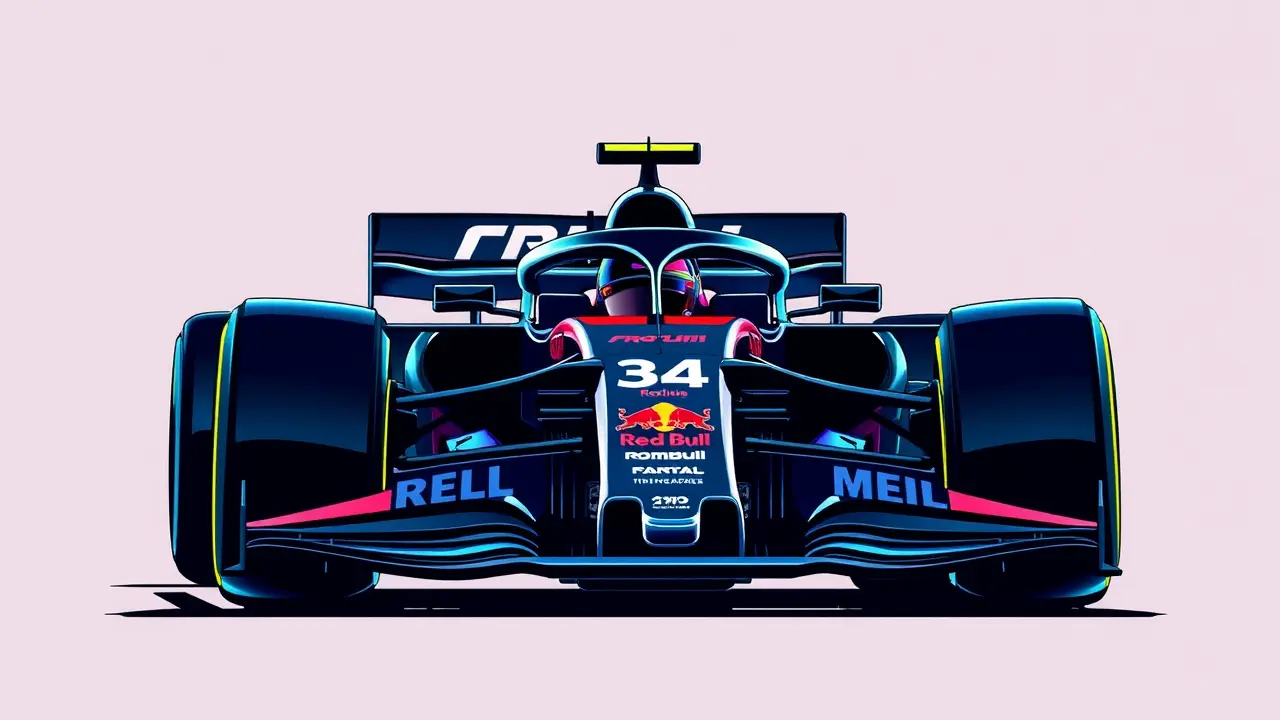Ajar Says Rosberg Beat Hamilton Not By Talent
In the high-octane world of Formula 1, where talent is often measured in milliseconds and sheer audacity, a fresh voice from the Red Bull Racing stable has thrown a rhetorical hand grenade into the paddock's most storied rivalry. Isack Hadjar, the rising star and self-professed disciple of the legendary Lewis Hamilton, now of Ferrari, has audaciously reframed the narrative surrounding the 2016 championship, a season that concluded with Nico Rosberg snatching the crown from his Mercedes teammate and promptly retiring from the sport.Hadjar’s candid assessment, delivered with the unvarnished honesty of youth, cut to the quick: ‘He had to fight Lewis like that. [Rosberg won] definitely not by talent.’ The ensuing moment, where a team press officer nearly choked on his latte, was pure theatre, but the underlying thesis demands a deeper, more analytical exploration, much like dissecting a football legend’s career beyond mere goal tallies. To compare this to football’s eternal debates, it’s the difference between a player who wins through innate, god-given skill—a Lionel Messi weaving through defenses with preternatural grace—and one who achieves greatness through relentless, almost obsessive, tactical preparation and mental fortitude, a Cristiano Ronaldo sculpting his physique and mind for peak performance.Hadjar was quick to clarify, laughing off any notion of intended disrespect, but his point stood firm: ‘For me… Nico was not [as talented], and he knows it. He is not as gifted as Lewis.However, he fought extremely hard. Because of this (tapping his head) he extracted the maximum from the guys around him and from the car.’ This is the crux of the matter, a revelation that transcends mere driver comparison and delves into the very essence of sporting success. Rosberg’s 2016 campaign was a masterclass in strategic warfare, a psychological and technical siege against a competitor widely regarded as one of the most naturally gifted drivers in the history of the sport.We’re talking about a man who, by his own admission after a costly error in 2015, locked himself in his hotel room for two days and emerged with a radical new philosophy: no more half-measures. This was his ‘marginal gains’ approach, his version of a football team analyzing every conceivable set-piece scenario.He became a student of his own craft and his opponent’s, optimizing everything from race simulations to media interactions, turning his entire existence into a weapon aimed at dethroning the king. Hadjar himself acknowledged this cerebral prowess, citing Rosberg’s impressive GP2 record and his renowned skill in car setup, concluding, ‘He is a very smart guy.I want to be capable of that too. ’ This admission is telling; it highlights the dual paths to victory in elite sport.On one side, you have the raw, explosive talent of a Hamilton, a force of nature whose racecraft seems almost instinctual. On the other, you have the calculated, intellectual grind of a Rosberg, whose victory was built not on superior cornering speed alone, but on a foundation of relentless analysis, perfect reliability management, and unbreakable mental focus when it mattered most.It’s the sporting equivalent of a chess grandmaster defeating a prodigy, not by being a better natural player, but by knowing the board, the patterns, and the opponent’ psyche more intimately. The 2016 season itself was a brutal, season-long slugfest, a clash of contrasting methodologies playing out over 21 races.Hamilton, plagued by early engine failures and occasional strategic missteps from the team, was perpetually playing catch-up, his brilliance often neutralizing the points deficit his rival had accumulated during more fortunate stretches. Rosberg, meanwhile, executed his plan with metronomic precision, securing wins and podiums with a consistency that was, in its own way, as impressive as any pole position lap.He won the war of attrition, proving that in a sport where the machinery is theoretically equal, the greatest differentiator can sometimes be the six inches between a driver’s ears. Hadjar’s comments, while jarring in their bluntness, ultimately serve to enrich the legacy of both drivers.They don’t diminish Rosberg’s achievement but rather recontextualize it as a monumental triumph of will and intellect over a seemingly insurmountable talent gap. It reinforces the idea that championships are won in the mind as much as on the track, a lesson every young athlete, in F1 or on the football pitch, would do well to learn. In the end, the record books show only one name for 2016, but the story of how it was earned is a complex tapestry of skill, strategy, and sheer human determination, a narrative as compelling as any in modern sports history.
It’s quiet here...Start the conversation by leaving the first comment.
© 2025 Outpoll Service LTD. All rights reserved.
